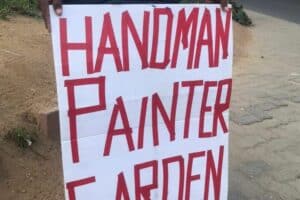Employers have been urged to apply for UIF on behalf of their employees furloughed during the lockdown, as this will ensure the system isn't overburdened by thousands of individual applications, and will also aid those who don't have internet access away from work.

The department of labour is imploring companies to apply on their employees’ behalf for payouts from the Unemployment Insurance Fund, as thousands of workers could be restricted from applying themselves.
This is because those workers who do not have access to internet services will not be able to apply online as government offices have remained shut because of the Covid-19 lockdown imposed last week.
The department’s chief director of labour, Thembinkosi Mkalipi, said during the lockdown nobody would be able to apply manually for UIF payouts, and afterwards the burden would be far too great if companies did not assist their employees.
“It assists workers because it makes it easier when a company applies for its employees and then the UIF gives the company the funds to pay all of its employees. Can you imagine if one company has 1,000 workers, then for 10 companies there will be 10,000 people applying individually, standing outside our offices and so on. And currently our offices are not going to be opening for the duration of the lockdown.”
Companies would receive funds for the payments from the UIF, which they would pay to their staff through their salary system.
The Democratic Alliance, meanwhile, wants government to start planning for an extended lockdown as the Covid-19 outbreak could see an overhaul of the entire annual budget tabled earlier this year.
This is because government services would need to be reconfigured to adapt to the new reality brought about by the coronavirus, which has infected more than 1,000 and killed two in South Africa.
On Monday, early payouts for some grant recipients saw a slight return to life at various shopping centres as ATMs, supermarket and Post Office queues were lined with the elderly and disabled. According to the South African Post Office’s acting CEO, Ivumile Nongongo, in addition to grant payouts for South African Social Security Agency (Sassa) beneficiaries, the only other service the post office would be open for this week was the delivery of medicines for the department of health and pharmacies.
DA leader John Steenhuisen said the next few weeks would test government’s ability to operate in a crisis, and urged the need to prepare for an extended state of disaster and lockdown period.
“We are going to continue to have areas where it is not possible for people to self-quarantine. Already we have seen our first case in Khayelitsha, which is not good news, because it means it is going to spread in an area where it is very densely populated,” said Steenhuisen.
“I think there are far more people infected with the Covid-19 virus than the picture we are having. We have the whole recantation of people from the urban to the rural areas at the beginning of the lockdown, where there are not enough facilities to take the extra burden on public facilities.”
Water and sanitation would have to be prioritised to provide the necessary hygiene to remote and poor areas. Budgets needed to be restructured to deal with healthcare and other essential services in order to provide for emergencies.
“We need to have sufficient reserves and redirect funding in national government and the municipalities. The Stellenbosch Municipality has been leading the way in terms of providing relief with rate accounts and redirecting budgets to help keep businesses open because we don’t want people to close their doors,” said Steenhuisen.
For more news your way, download The Citizen’s app for iOS and Android.
Support Local Journalism
Add The Citizen as a Preferred Source on Google and follow us on Google News to see more of our trusted reporting in Google News and Top Stories.






